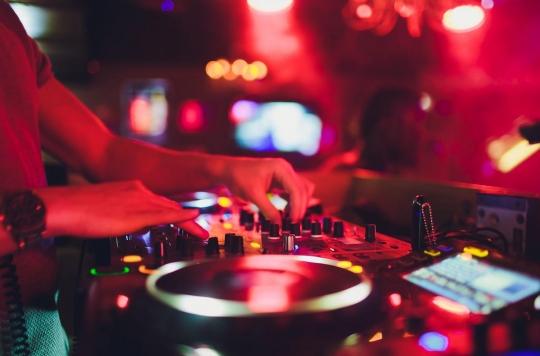The postponement of the experiment scheduled for last Saturday in two Parisian nightclubs for lack of volunteers prevents the availability of data on the risks of contamination to accompany the reopening of these establishments scheduled for July 9.

- Nightclubs will be able to accommodate a gauge of 75% indoors and 100% outdoors without the wearing of a mask being compulsory but on presentation of the health pass.
- English experiments at festivals, nightclubs and concerts have been described as “successful”.
Last Saturday, two Parisian nightclubs, the Cabaret Sauvage and the Machine du Moulin Rouge, were to welcome the public as part of an experiment aimed at studying the risks of contamination with a view to the reopening of nightclubs. The organizers were forced to postpone the experiment for lack of volunteers. Organizers hoped to attract 4,400 participants who had been fully vaccinated for at least two weeks and aged between 18 and 49. With this postponement, the nightclubs will reopen on July 9 without visibility on the risks of infections.
The study “ITOC – Come back at night” is postponed to a later date. Thank you for your support. #ComeBackTheNight pic.twitter.com/eC6aiysnDu
— Come back at night (@ReviensLaNuit) June 26, 2021
Even vaccinated, contamination is possible
According to the government’s deconfinement plan, nightclubs will be able to accommodate a gauge of 75% indoors and 100% outdoors without the wearing of a mask being compulsory. The health pass will be claimed at the entrance. Despite this, the risk of contamination is always present. As we have learned from in vivo experiments in Israel and Great Britain, infections are still possible despite vaccination, especially due to the Delta variant.
In August 2020, the High Council for Public Health (HCSP) issued an opinion on the possible reopening of nightclubs, deciding against it. Almost a year later, the situation has changed a lot, notably thanks to vaccines, but the points raised remain relevant. The HCSP then pointed to “case of clusters originating from the discotheques described (South Korea, Spain, Switzerland), aerosols linked to singing activities or even the disinhibition of behavior by the consumption of alcoholic beverages”. These are all factors that favor the potential spread of the virus.
In England, experiments that give hope
Between the end of April and the beginning of May, several experiments were carried out in England in order to study the risks of contamination. A total of 13,000 volunteers took part in various events: a three-day festival from April 28, two nights at a disco on April 30 and May 1, and a concert in Sefton Park on May 2. Each participant had to perform a Covid-19 screening on the day of the event in which they took part and then another five days later.
The results revealed just 11 positive tests among the 13,000 participants. Liverpool’s director of public health, Matt Ashton, called the real-life experiments “success“, to the BBC. Among the positive people, nine spent an evening in the nightclub and the other two attended the concert. Matt Ashton, however, indicated that the individuals in question knew each other. “It is therefore also possible that these people were contaminated after the experiments in real conditions.“, he estimated.
The results of the concert-test expected for the beginning of July
In addition, on May 29, a test concert by the Indochine group was held in Bercy, bringing together 5,000 people. Results are expected in early July. Upstream, each participant, aged 18 to 45, tested negative for an antigen test. These tests had to be carried out between Wednesday and Friday, while the concert was held on Saturday. All participants were also asked to undergo a saliva test on the day of the event, and then another seven days later. In the room, there was no physical distance between the spectators but the mask was compulsory.

.

















